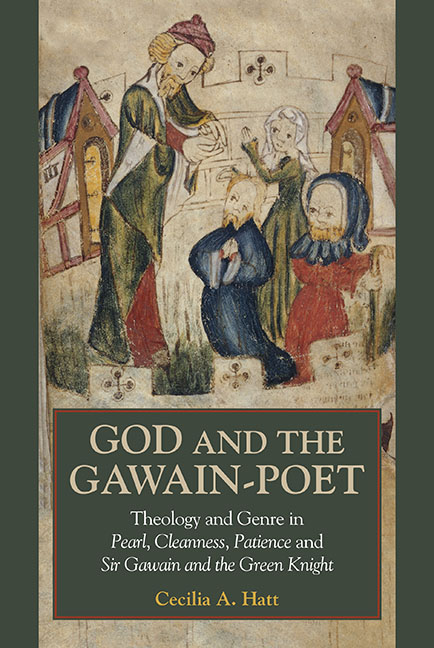 God and the Gawain-Poet
God and the Gawain-Poet Book contents
- Frontmatter
- Dedication
- Contents
- Preface and Acknowledgements
- Abbreviations
- Introduction: Signposts on the Trail of the Gawain-Poet
- Chapter 1 Pearl, the Jeweller’s Dream
- Chapter 2 The Difficulty of Cleanness
- Chapter 3 Patience and the Book of Jonah
- Chapter 4 Sir Gawain and the Green Knight: an Alternative Romance?
- Appendix: some Biographical and Contextual Speculations
- Select Bibliography
- Index
Appendix: some Biographical and Contextual Speculations
Published online by Cambridge University Press: 07 May 2022
- Frontmatter
- Dedication
- Contents
- Preface and Acknowledgements
- Abbreviations
- Introduction: Signposts on the Trail of the Gawain-Poet
- Chapter 1 Pearl, the Jeweller’s Dream
- Chapter 2 The Difficulty of Cleanness
- Chapter 3 Patience and the Book of Jonah
- Chapter 4 Sir Gawain and the Green Knight: an Alternative Romance?
- Appendix: some Biographical and Contextual Speculations
- Select Bibliography
- Index
Summary
THE Gawain-poet was evidently interested in pattern. There is no way of knowing if he was responsible for the copying and arranging of the poems of MS Cotton Nero A.x Art.3, but if he was not, the work was done by someone who seems to have thought along very similar lines. It is hard to believe that the choice and ordering of the four poems was not a deliberate shaping act. No-one really thinks that they were composed in the order in which they appear in the MS, with the two masterpieces at beginning and ending, both 101 stanzas long, a resemblance that was surely intended. Cleanness was probably the earliest of the four, and the main reasons for thinking so are given in Chapter 1, but an incidental reason is that, unlike the others, Cleanness does not end as it begins. It is possible that the move towards circularity began quite by chance with Patience, which begins
Pacience is a poynt, þaȝ hit displease ofte,
and ends
… pacience is a nobel poynt, þaȝ hit displese ofte.
The first line is usually printed as written above, but in the MS the third word is apoynt. Accepting this as the intended reading would mean taking apoynt as signifying ‘enjoined’, which makes perfectly good sense. This turns the last line into a pun, which is a happy effect that might have given the poet the idea of making his subsequent poems end as they began, but for extra artistic reasons.
Apart from the symmetry of placing Pearl and SGGK at opposite ends of the collection, it seems likely that SGGK stands in an ironic relation to the other poem, the resemblance of 101 stanzas being a pointer to the contrast. Two of the poems explicitly take their starting-point from a Beatitude, and this raises the possibility that the Gawain-poet had in mind a programme of poems on the Beatitudes. In support of this it could also be argued that Pearl would be a suitable offering for ‘Blessed are they that mourn’. An attractive theory is that this poet might have been in the habit of producing something for the great festivity of All Saints on November 1st.
- Type
- Chapter
- Information
- God and the Gawain-PoetTheology and Genre in <I>Pearl, Cleanness, Patience</I> and <I>Sir Gawain and the Green Knight</I>, pp. 224 - 231Publisher: Boydell & BrewerPrint publication year: 2015


